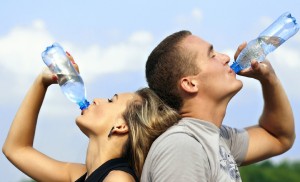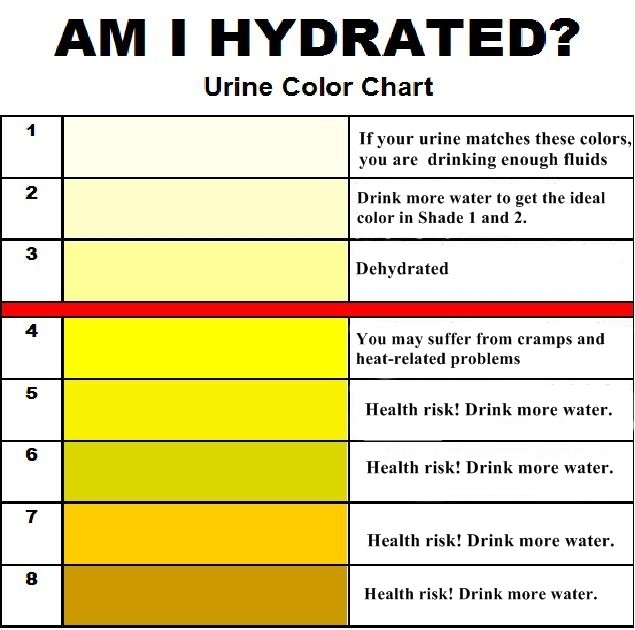Temperatures at this year’s London Marathon were among the hottest on record – and with runners now taking to the streets to prepare for the Great North Run – therapists at Newcastle Sports Injury Clinic would like to share some advice and tips on staying hydrated in the heat.
When we do exercise such as running our muscles use about 25% of energy for work whilst the rest is released as heat in the form of sweat. This helps us cool down but during hot weather we sweat more so replacing this fluid becomes more crucial as if we lose too much we get fatigued and our performance will suffer and could lead to severe hydration, heat stroke and in some cases even death – exercise whilst dehydrated can cause your temperature to rise to extreme levels which is potentially fatal.
 Some things we can do to help us keep properly hydrated:
Some things we can do to help us keep properly hydrated:
- Weigh ourselves before and after training/ race preferably with minimum clothing
- Make sure you have passed urine before weighing before exercise
- Try and weigh yourself as soon as possible after
- Make a mental note of how much fluid you have took in during exercise
Before long endurance events such as a marathon drinking 400 – 600ml of water or sport drinks in the 2 hours before will hydrate your body. And drinking 300 -500 ml in the 15 mins prior to the start can help your body absorb fluid better. Marathon event organisers will have water stations throughout the route, please take advantage of these stations and be sure to grab some fluids as you run past.
During exercise take regular sips of water, this minimises stomach discomfort. Aim to drink between 150ml and 250ml every 15 mins. Use Salt tabs or isotonic gels to replace sodium loss.
After Exercise calculate your fluid loss as an estimate, each kg of weight loss is equivalent to one litre of fluid loss but the amount of fluid needed is estimated to be 1.2 to 1.5 times the fluid loss so 1.2 to 1.5 litres of fluid per kg of weight.
For example:
Initial weight 70kg
Final weight 69kg
Weight Difference 1kg (1000ml) lost
Fluid intake in training 500ml
Total Fluid Loss 1000+500= 1500ml
Total Fluid Needed 1800 to 2250ml
During endurance events lasting longer than an hour it is also recommended to ingest 30- 60g of rapidly absorbed carbohydrates, this makes it isotonic which is a similar concentration to our blood
It is always good to check the colour of your urine before and after, use the below chart as a guide to your hydration levels and adjust your fluid intake accordingly:
Contact us for more information about hydration or injury support as part of your Great North Run preparations.


